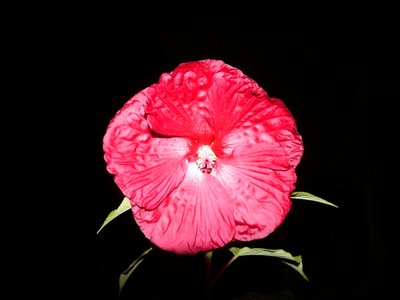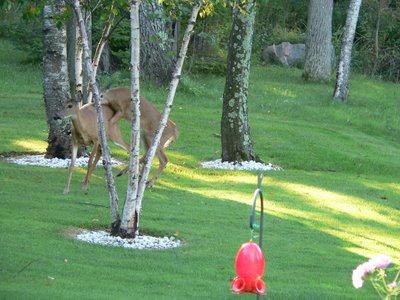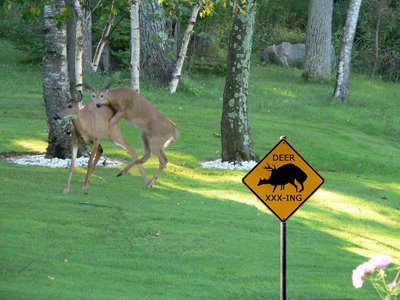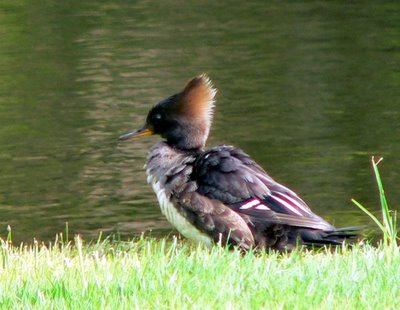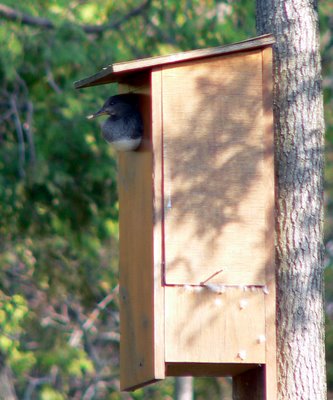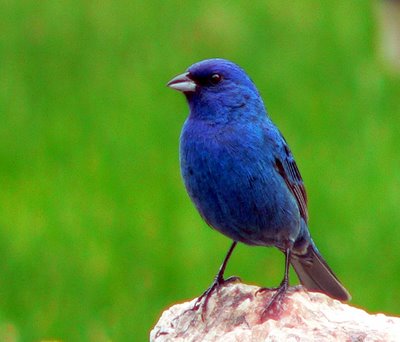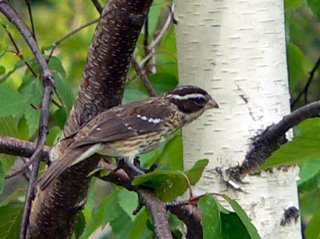
This picture was taken on 27th December, 2006 at the Edinburg, Texas World Birding Center. Kiskadee's are one of the larger members of the flycatcher family, measuring about 10" long. They are monogamus with both parents helping with the feeding of offspring. Although they're flycatchers, they will also eat nuts, berries, frogs, grasshoppers and occasionally will dive for fish in shallow water.






























